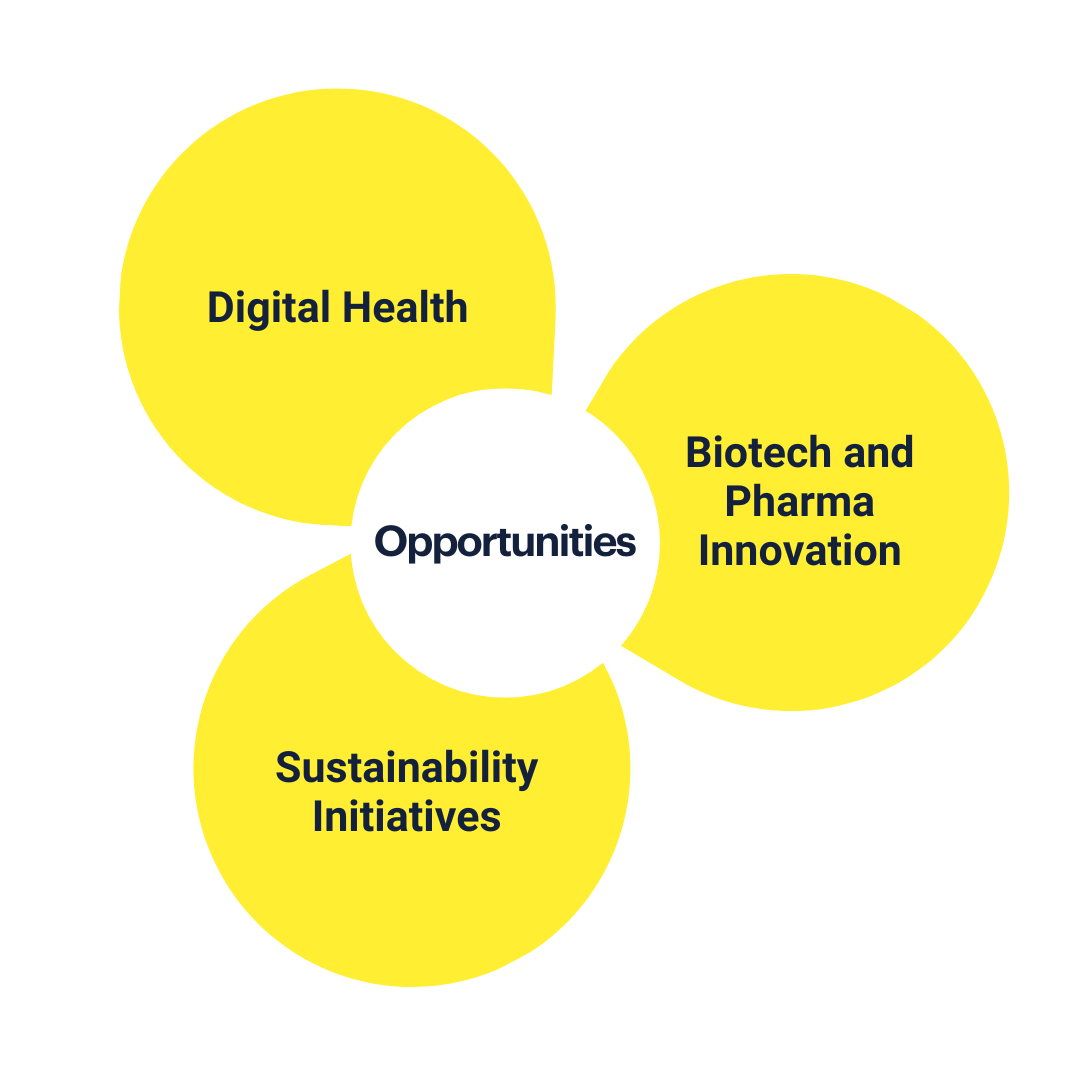The life sciences and healthcare sector in Germany is important for both the health of the public and the economic stability of the country. However, this industry has several pressing challenges that it faces, including an increasing aged population, regulatory pressures, and the need for fast innovation.
Amid this complexity, executive search companies play a very crucial role by identifying and securing top leadership talents required to address these challenges as well as take advantage of emerging opportunities.
Current Landscape of Germany’s Healthcare and Life Sciences Sector
This sector stands out among others worldwide due to its strong pharmaceutical industry, cutting-edge medical research, and extensive healthcare system. Nevertheless, there is growing pressure on this sector.
The demand for healthcare services is rising because of increased aging populations while recent crises such as COVID-19 pandemic highlighted risks in supply chain management systems as well as labor force capacities. Beyond that, rapid changes in technology must be innovated continuously from drug discovery processes to digital health solutions.
On the other hand, Germany has made great investments into health care infrastructure including innovation, but difficulties still exist. Especially with European Union medical device regulations changing frequently; more stringent regulations are being enforced about them.
Germany: Insights and Statistics on the Healthcare sector
- Market Size: This sector is the biggest in Europe, with over €400 billion averagely spent on health annually, which translates into over 11% of GDP.
- Employment Trends: In total, healthcare sector employs about 7.5 million people constituting approximately 16% of German labor force; also, there is an acute shortage of experts in nursing and medical field.
- R&D Investment: In Germany, research labs in pharmaceutical sector spend around €8bn every year on R&D activities.
It emphasizes the significance of this field as well as how it needs to improve its services and keep on innovating constantly under severe pressure.
Challenges for the Life Sciences and Healthcare Sector
- Aging Population: The German population is aging rapidly resulting in increased demand for healthcare services including those provided on long term basis and specialized treatments such as chronic disease management. These demographic changes put stresses on existing resources requiring new approaches to health care provision.
- Regulatory Pressures: Strict regulatory environment governs this industry especially after EU introduced new regulations regarding medical devices. Investment in quality management and risk assessment is essential for compliance.
- Technology Innovations: The urgency for digital change has pushed health providers and pharmaceuticals to invest in technologies like telemedicine, AI diagnostics, personalized medicine. Despite this challenge of suiting them into existing systems.
Opportunities for the Life Sciences and Healthcare Sector
- Digital Health: Rise of digital health solutions offers great opportunities. Telemedicine, health apps, and digital therapeutics have rapidly grown in Germany due to heightened consumer demand and supportive regulation.
- Biotech and Pharma Innovation: Germany’s strong pharmaceutical industry is well-positioned to capitalize on advances in biotechnology, particularly in fields like gene therapy and personalized medicine.
- Sustainability Initiatives: The growing emphasis on sustainability is driving innovation in areas such as green pharmaceuticals, eco-friendly medical devices, and energy-efficient healthcare facilities.

The Importance of Executive Search for healthcare leadership Germany
The life sciences and healthcare sectors are complex and changing rapidly requiring leaders who combine deep industry knowledge with the ability to manage change whilst fostering innovation. These are significant players among executive search firms:
- Identifying Leadership Gaps: Executive search firms specialize in identifying distinct skills sets needed for leading within a highly regulated fast-paced sector like this one.
- Culture Alignment: Alignment with the company’s business culture as well as the ability to fit into its strategies is a crucial requirement for any leader that wants to succeed, especially in an industry as delicate as healthcare.
For instance, executive search firms that are specialized in life sciences and health care can draw on global talent pool available ensuring organizations have access to top talent worldwide.
With challenges such as old age population, regulatory pressures and continuous innovation requirements, executive search firms have an ever-increasing role to play. They have the capacity to find leaders who can lead businesses through intricate problems and unlock new areas of growth.









